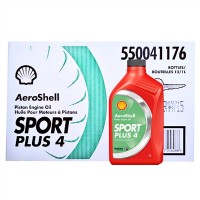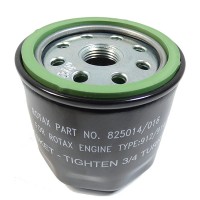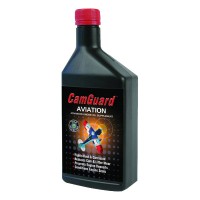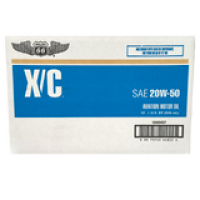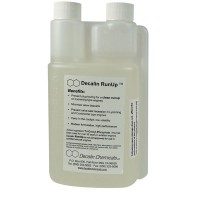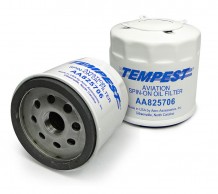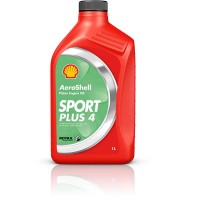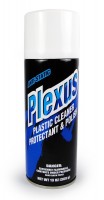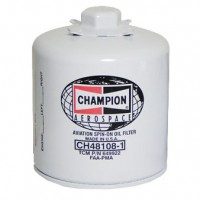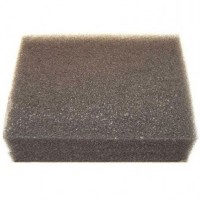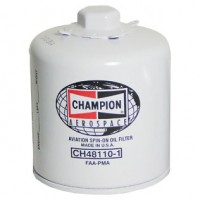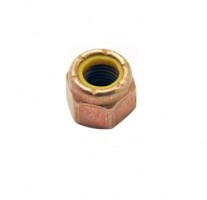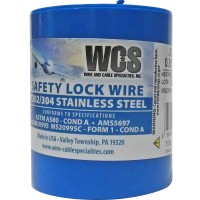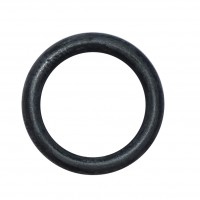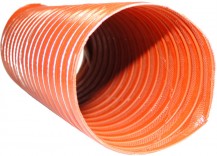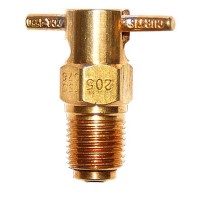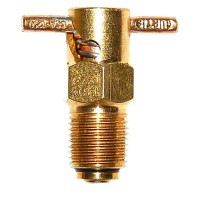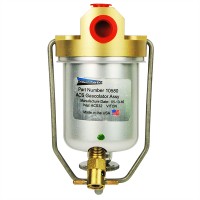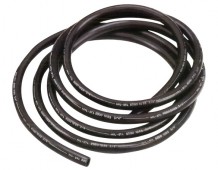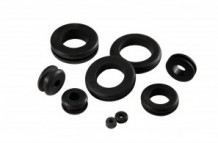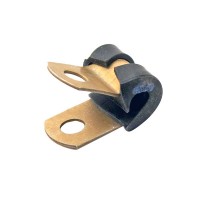Decalin RunUp Fuel Additive Quart
Overview
|
Decalin RunUp is approved for use with the new 100VLL (Very Low Lead) fuel announced by the FAA on Special Airworthiness Bulletin NE-11-55. Decalin RunUp contains two types of additive, one to reduce the negative effects of tetraethyl lead in aviation fuel and the other to improve the combustion efficiency, reduce combustion deposits and clean the fuel delivery system in aircraft. Users can expect the same level of engine cleanliness when using this fuel and Decalin RunUp as they saw with 100LL.
Make sure you remove and clean your oxygen sensor every 20 hours to remove these lead phosphate deposits when using Decalin RunUp. The dosage of 1/2 ounce per ten gallons of fuel is a minimum. This can be increased to a maximum of 2 ounces per ten gallons for problem engines. Decalin RunUp is not approved for use in the engines of certified aircraft but it has the same active ingredient, Tri Cresyl Phosphate as our previous product. Lycoming clone users have reported very good results when using this product. RunUp MSDS Notes: Some white deposits may be seen on the plugs and in the exhaust pipe during use; this is normal with RunUp since the lead in the fuel is being converted to non conductive lead phosphate. When no additive is used, lead oxide is formed. It is lead oxide which causes plugs to misfire due to its partial conductivity shorting out the plug. In addition, lead oxide tends to form in large clumps or clinkers whereas the lead phosphate is crumbly and if anyy is left behind in the combustion chamber it deposits in even layers. |
WARNING: Cancer and Reproductive Harm - www.P65Warnings.ca.gov. |
Features
- Scavenges Lead in aviation fuel after combustion to prevent lead oxide buildup on valves but still allows the lead to perform the anti-knock function prior to combustion.
- It is an excellent additive for auto conversions, where it reduces buildup on oxygen sensors and plugs. If you have to use 100LL, then this stuff is for you.
- Prevents valve seat erosion from valve seat micro welding. It is equivalent to TCP (for experimental only).
- Does not contain volatile solvents so it is safe to ship and safe in the cockpit. You can carry it with you for out-of-town airports.
- Easy to use graduated measuring and dispensing reservoir built into the bottle. No messy syringes!
- Tested and stable down to 0 degrees F.
Documents
Reviews
Decalin RunUp is a perfect fuel additive for the Rotax 9121LS engine in my Light Sport AC. The Rotax is designed for unleaded auto gas, not low-lead gas, so this product is very useful when I burn 100LL Avgas.
Decalin RunUp Fuel Additive Quart
Helps get the lead out, and can be carried in plane unlike other scavengers
Decalin RunUp Fuel Additive Quart
This helps keep the lead out of my plugs and valves.
Decalin RunUp Fuel Additive Quart
This additive works very well minimim plug fouling. Find that the price is higher than other options. Shipping cost is very high.
Decalin RunUp Fuel Additive Quart
I have been using Decalin in C-85s and O-200s, for many years. It does an excellent job of keeping the spark plugs, free of lead fouling. After using it for a year, you’ll be surprised at how clean the plugs are, at next annual.
Decalin RunUp Fuel Additive Quart
Have used this additive for many years. Has helped greatly when I am forced to use avgas in the Rotax engine.
Decalin RunUp Fuel Additive Quart
Decalin RunUp Fuel Additive Quart
Ive been using Decalin Runup on my Rotax 912 ULS for the past 7 years. It flies 10-20 hours a month. After 1,100 hours burning 100LL exclusively, there is almost zero accumulation of lead - only a slight film in the bottom of the reservoir every 300 hours. This stuff is amazing!
Decalin RunUp Fuel Additive Quart
Decalin RunUp Fuel Additive Quart
Decalin is excellent for reducing the bad effects of lead in avgas
Decalin RunUp Fuel Additive Quart
Q&A
Please note, Aircraft Spruce ®'s personnel are not certified aircraft mechanics and can only provide general support and ideas, which should not be relied upon or implemented in lieu of consulting an A&P or other qualified technician. Aircraft Spruce ® assumes no responsibility or liability for any issue or problem which may arise from any repair, modification or other work done from this knowledge base. Any product eligibility information provided here is based on general application guides and we recommend always referring to your specific aircraft parts manual, the parts manufacturer or consulting with a qualified mechanic.
This product has a two year shelf life so yours may not be good anymore. This product is table down to -60 degrees C. This will not freeze or separate at any temperature. Please see the tech data sheet in the 'Documents' tab for more information.
The short answer is yes. This has an advanced deposit removal ingredient which will remove existing deposits. Depending on the quantity of the deposit, this may take time to achieve, but generally one or two full tanks of fuel will do the job. Fuel injectors and throttle bodies get cleaned up as well at the same time.
Yes, Decalin Runup is compatible with auto gas. Decalin should be added in proportion to the 100LL being added. There are no negative effects to doing this.
Per Vendor, Yes the Declain Runup is compatible with fuel resistant composite fuel tanks along with fuel resistant fiberglass cloth and epoxy resins and hardeners.
10 quarts per case.
Per the Supplier: All our experience so far says that this issue is unrelated to the addition of Decalin RunUp to 100LL. The ingredients in this product are miscible in all proportions with aviation gasoline. To speculate, cold weather causes condensation in fuel tanks, so this issue may be more related to the season.
The active ingredient in Decalin RunUp follows the “lead” of the lead, if you’ll excuse the pun. It reacts with a majority of the lead in the fuel to produce lead phosphate which is mostly blown out of the exhaust. Remaining lead in unburnt fuel finds its way into the oil by bypassing the pistons. The ingredient is already dissolved in the fuel and goes with it into the oil sump. There it acts as a suspending and dispersing agent, preventing the lead from precipitating and agglomerating into an abrasive sludge. It also performs other useful duties by helping to remove carbonaceous deposits in the oil galleries.
Shelf life is 2 years from the date it is shipped to us. This is unopened, and storage would not add to shelf life.
Yes, Decalin RunUp will work just as well with fully synthetic oil in suspending the lead in the oil. There is a limit as to how much lead it will hold in solution and here is some reported data in a Rotax engine using synthetic oil. The results indicate that after 91 hours of operation my oil contained 1098 ppm of Lead (Pb). During the 91 hours of operation I used 49.85 gallons of 100 LL fuel, all of which was treated with Decalin at the rate suggested on the product.
Yes, there is a date code on the bottle.


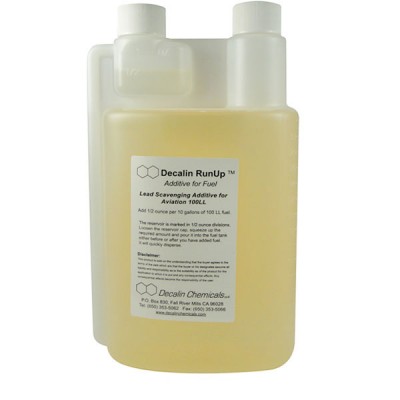





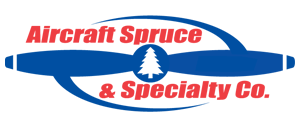 FREE Shipping
FREE Shipping
